
- Home
- Products
- Partners
- Solutions
- Services
Services
-
News
News
- About us
About us
- Contact us
Contact us

Services
News
About us
Contact us



The article is selected from Instrument Information Network
On August 27, 2019, Beijing Center for Physical and Chemical Analysis and Testing and Axel Semrau (Germany) successfully held the inauguration ceremony of the "Mineral Oil Analysis and Testing Technology Research Cooperation Laboratory" and the academic exchange on the latest development of mineral oil analysis technology. Qing-jun liu, vice President of the Beijing municipal science and technology research institute, Beijing food and reserve bureau deputy director Yan Weihong, China association of analytical Wang Zhengfan, Beijing science and technology institute of technology transfer in lu-gang guo and scientific bureau, deputy director of the Li Yanxue, the physical and chemical analysis and test center, deputy director of the high, the researcher yan-wen wu, Dr. Andreas Bruchmann, Executive Director of Axel Semrau, Dr.Zhu, Technical Director of Esensing, He Jun, Strategic Planning Director of Agilent Greater China, and more than 20 other people attended the opening ceremony of the collaboration lab and the academic exchange activities on the latest developments in mineral oil analysis technology.
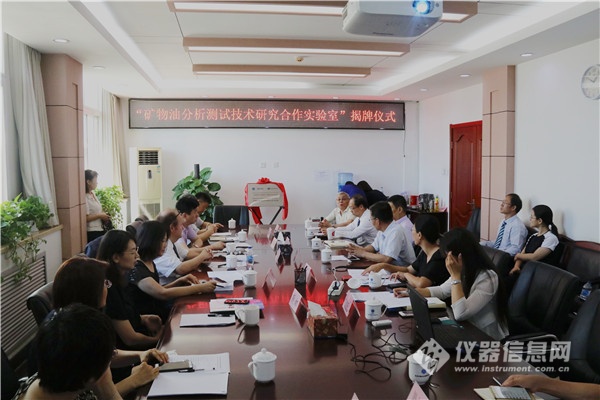
Event
Based on their respective future development strategies, Beijing Center for Physical and Chemical Analysis and Testing and Axel Semrau Co., Ltd. (Germany) established the "Mineral Oil Analysis and Testing Technology Research Cooperation Laboratory". The cooperation laboratory will carry out the work of instrument application, method training and standard verification, etc. Hope that through cooperation, complementary advantages, jointly promote the liquid chromatography and gas chromatography coupled to the mineral oil analysis technology of application of localization in China, especially the establishment of food method for determination of the mineral oil in standard contribute to China's food safety, for the future with the distribution of the mineral oil in domestic food screening, to reduce the harmful substance content in the diet, etc., Provide technical backlog and method support.
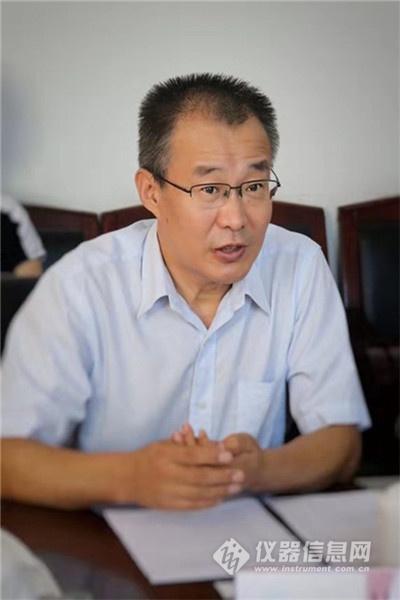
Dr. Liu Qingjun, Vice President of Beijing Academy of Science and Technology
Beijing Academy of Science and Technology (BSTT) is a large multi-disciplinary and high-level scientific research institution affiliated to Beijing Municipality, with a focus on applied basic research, strategic high-tech research, major public welfare research and development of science and technology services. Qing-jun liu introduction to the six major center of Beijing institute of science and technology of the three major platforms, including testing analysis and testing platform is given priority to with physical and chemical analysis and test center of Beijing, formed the equipment open sharing of the new operation mechanism, strengthen the application research and high-tech research and major scientific and technological research, and constantly improve the scientific research and development and the independent innovation ability, form a competitive advantage.
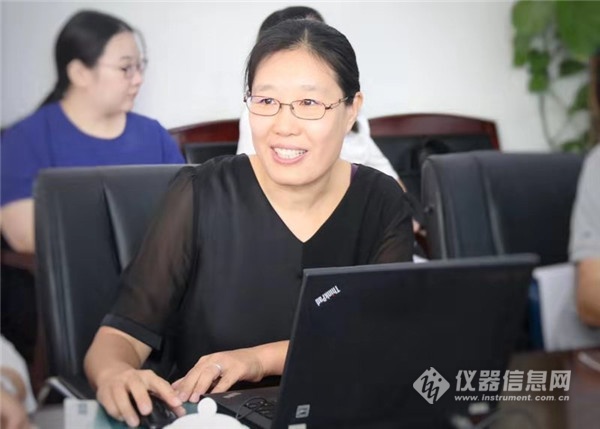
Dr. Gao Xia, Deputy Director of Beijing Physical and Chemical Analysis and Testing Center
After nearly 40 years of development, the Beijing Center for Physical and Chemical Analysis and Testing has become the only comprehensive analytical scientific research institution and the largest open and shared analytical and testing platform in the capital region. At present, the comprehensive strength of the Center ranks the second among the local analysis and testing centers in China, and ranks among the top 10 third-party physical and chemical analysis and testing institutions in China. The economic aggregate of the Center has exceeded 100 million yuan for four consecutive years.
Beijing physical and chemical analysis test center around the food and drug safety, environmental monitoring, material analysis, biological technology, domestic scientific instruments to demonstrate the application main areas to carry out the analysis test such as scientific research and technical service work, formed the food and drug quality and safety testing technology, soil and air environment monitoring and testing technology, unknown material composition analysis and identification techniques such as brand.
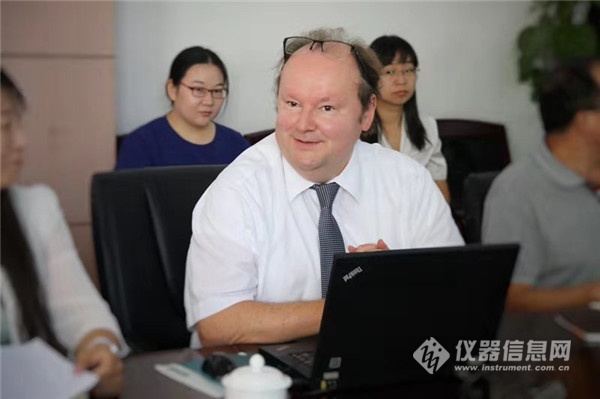
Dr.Andreas Bruchmann, Executive Director of Axel Semrau, Germany
For the past 35 years, Axel Semrau and its employees have been dedicated to the development, sales and support of workstations for sample preparation, chromatography, chemical synthesis and application optimization. Axel Semrau is developing its own hardware and software to provide unique and powerful solutions for food analysis, especially for online automatic sample preprocessing and multidimensional chromatograms. Axel Semrau aims to be known for its excellent application solutions combined with excellent self-developed software. In addition, the Axel Semrau name will be closely associated with superior customer service and customer relationships, including customers, suppliers or partners.
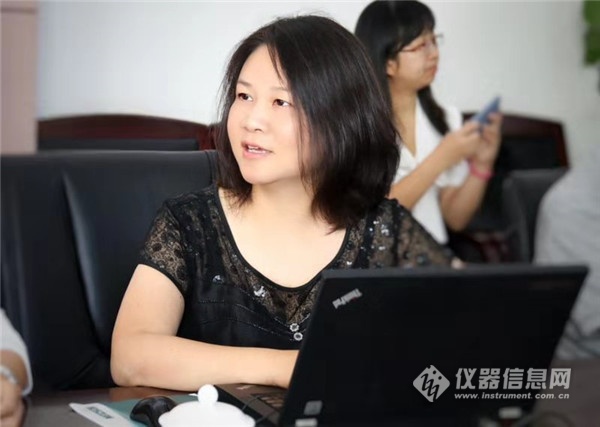
Dr Zhu Min, Technical Director of Esensing
Esensing Analytical Technology Co., Ltd was established in 2005. It is an instrument supplier with R&D, integration, production, agency, sales and technical services, providing comprehensive solutions from sample pretreatment to analytical testing for environmental monitoring, food safety and clinical testing, etc. The technical team is composed of many engineers with PhD and Master degree and professional training. We have main offices in Shanghai, Beijing and Guangzhou, and a research and development test and training laboratory in Shanghai.
Esensing has cooperated with Axel Semrau to develop software and hardware solutions suitable for China applications using Axel Semrau's software platform. In 2018, Esensing became Agilent's VAR partner to launch a solution for the detection of mineral oil in food.
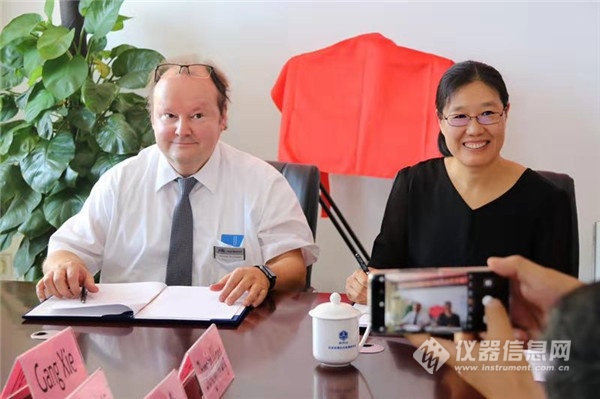
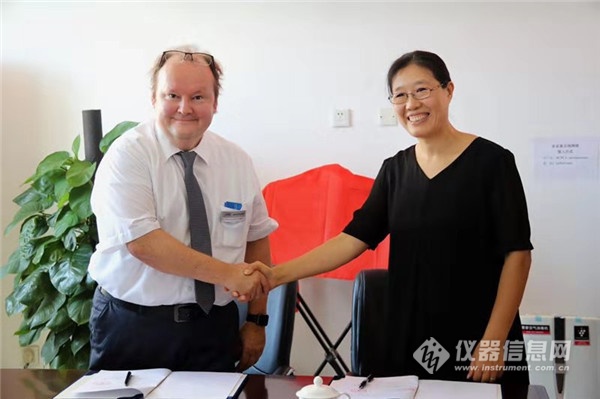
Dr. Andreas Bruchmann, Executive Director of Axel Semrau, Germany, and
Gao Xia, deputy director of Beijing Physical and Chemical Analysis and Testing Center, signed the cooperation agreement
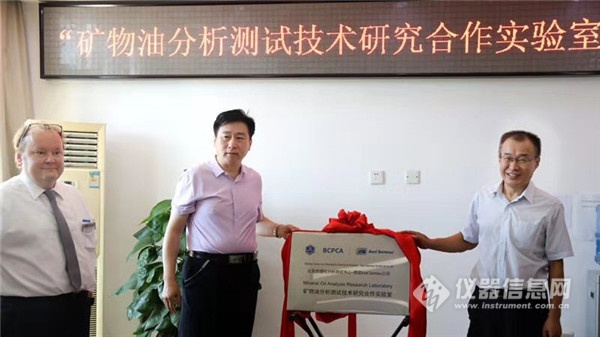
Yan Weihong, Deputy Director of the Beijing Municipal Bureau of Food and Strategic Reserves,
and Liu Qingjun, Deputy Director of the Beijing Academy of Science and Technology, inaugurated the cooperative laboratory
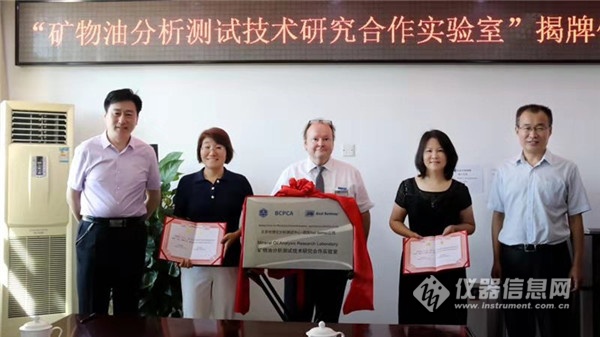
The certificate ceremony was presented to Dr. Wu from Beijing Physical and Chemical Analysis and Testing Center
and Dr. Zhu , Technical Director of Esensing Analytical Technology Co., Ltd
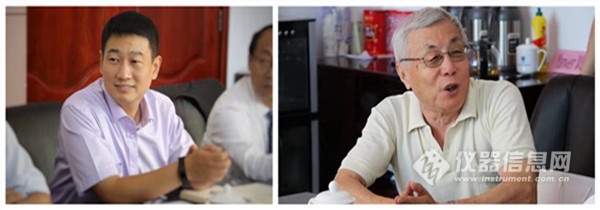
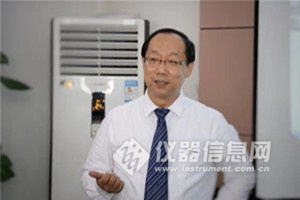
Guest Address (Guo Lugang, Director of Technology Transfer Division, Beijing Academy of Science and Technology, Wang Zhengfan, China Association for Analysis and Testing, He Jun, Director of Strategic Planning, Agilent Greater China)
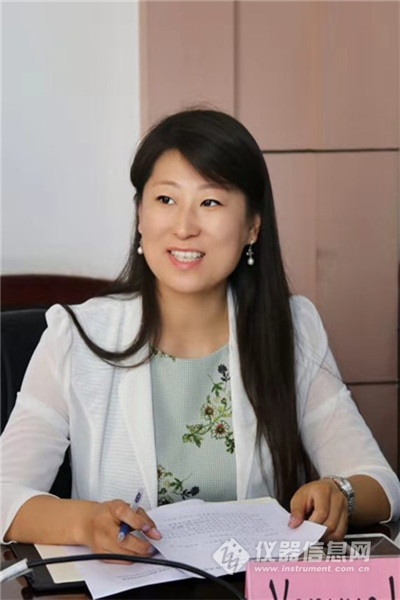
Li Yanxue, Deputy Director of Research and Development Office of Beijing Academy of Science and
Technology presided over the activity
Mineral oil originates from petroleum and is a general term for hydrocarbon compounds of C10~C50, mainly including straight chain alkanes, branched-chain alkanes, alkyl-substituted cyclic saturated alkanes (MOSH) and alkyl-substituted aromatic hydrocarbons (MOAH). Now it is widely believed that MOAH has potential carcinogenic and mutagenic risks. However, MoSH (especially C16~C35) is easy to accumulate in body organs and may cause damage, so the detection of mineral oil is very important.
In recent years, the pollution of mineral oil in food has attracted much attention. Food contact materials especially the residual ink in the recycling or recycled paper, food raw materials in the process of harvesting, drying, processing contact with engine oil, incomplete combustion of gasoline, tires and asphalt detritus, use the shortening of the food processing, as well as environmental pollution, etc., are the main source of mineral oil pollution in food. However, due to the complex composition, large quantity and serious matrix interference, the detection of mineral oil is a recognized technical problem in the industry. The German Federal Institute for Risk Assessment (BFR) clearly requires that the MOSH migration amount of contact materials used for food packaging should be less than 2mg/kg and MOAH should be less than 0.5mg/kg. In 2017, the EU published a proposed guidance document on the "Monitoring of Mineral Oil Hydrocarbons in Food and Food Contact Materials and Articles", which states that mineral oils can remain in food through environmental contamination, harvesting and food production. Subsequently, the EU introduced the EN16995 analytical method for mineral oil, which greatly promoted the investigation of the contamination of mineral oil in the EU or in food exported to the EU. Wu Yanwen's team from Beijing Physical and Chemical Analysis and Testing Center started the research on mineral oil analysis methods in 2015, and its developed methods and testing levels have entered the forefront of the world.
After the opening ceremony of the cooperative laboratory, the participants had an academic exchange on the latest development of mineral oil analysis technology. Dr. Andreas Bruchmann, Executive Director of Axel Semrau, Germany, and Dr. Wu Yanwen from Beijing Physical and Chemical Analysis and Testing Center respectively shared the research progress and standard formulation of mineral oil analysis at home and abroad. Participants held a heated discussion on the application of this technology and looked forward to cooperating with each other to promote the further development of this technology.
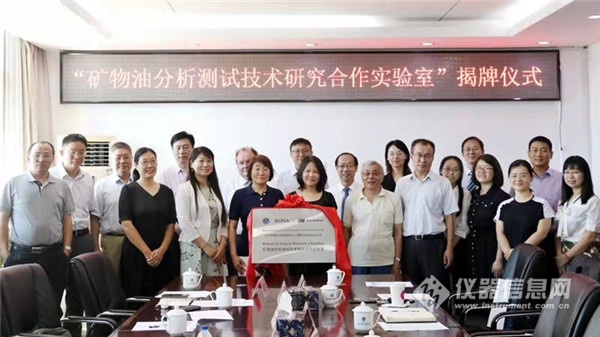
A Group Photo